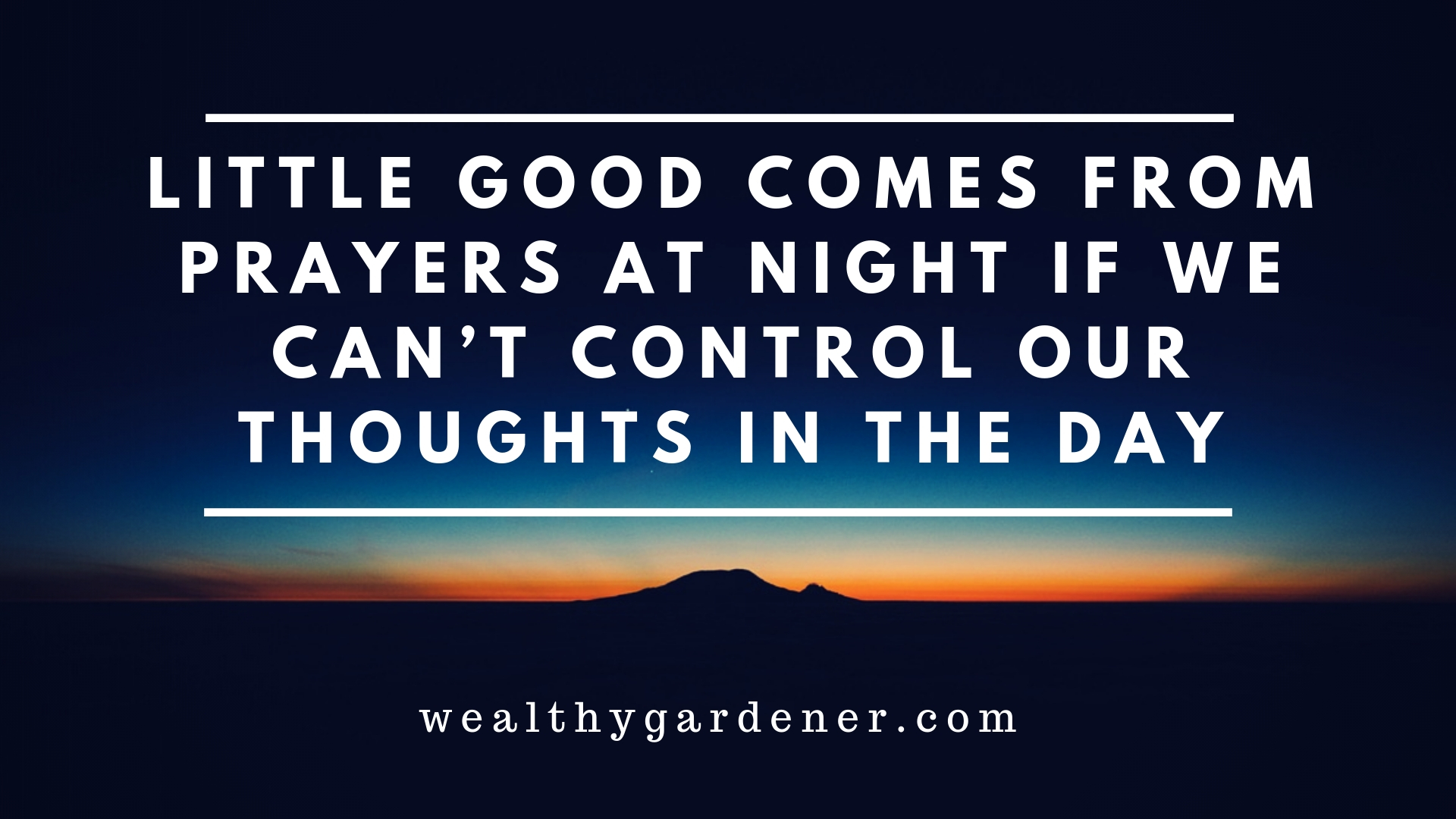“Possibility thinking is a wonderful state of mind.”

On the very first page of The Wealthy Gardener, I wanted to set the overall tone of the book. And so I created a verse to give a reader pause.
The moral is clear as I look back,
At the lessons now that I’m of age.
That the book of one’s life is determined,
By the courage contained in each page.
So let’s take a moment to talk about the book of life, and the courage in each page. The way I write a book is that I start with the end in mind. And then I write a plot that leads to this end. It’s the best way to plan a lifetime, too.
In the classic book, The Seven Habits of Highly Effective People, Stephen Covey’s second habit is: Begin with the end in mind.
What’s will be the end of your story? On the day of your death, what would you regret on this day if you don’t do, see, and try? Use this question to think.
I suggest you write this question on your cell phone as a note. Just write, “What will I regret if I don’t do, see or try?” And then go for a think walk every day to contemplate your answers. Or stay inside if you can’t leave the house.
Keep thinking and dreaming until you have a bucket list of 100 goals. Think of 100 possibilities without regard for how it will all happen.
And don’t make excuses. Just make the list!
I promise you that 100 goals won’t be easy to dream up. I know because I’ve done it. The second 50 are the hardest, but the payoff of the effort is huge.
And don’t let your age stand in the way of doing this. Far too many of us begin using age as an excuse for not dreaming big. We say things like, “I wish I’d done things differently,” or “I’m too old to start over.”
We talk about our past as if our best days are behind us. It’s just an excuse to not live fully today, and in the days ahead. We all have time left. The only question is what are we going to do with it?
“It’s never too late,” Nancy Thayer said,” in fiction or in life, to revise.”
We’re in a crisis, but I cannot tell you how much relief you’ll feel when you start dreaming big. Your mind will at first resist, but if you stay with it, I promise that your spirits will rise. Possibility thinking is a wonderful state of mind.
And what do you do after you have 100 goals? Well, then it’s time to consider this list your unfinished business. And don’t worry if items on your list change in the future. When your life unfolds, you’ll see that your list changes, too.
Just making the list will put your mind on possibilities, and that’s a wonderful state of mind. Build castles in the air. Imagine your wishes fulfilled.
It’s never too late to revise the ending of your story. And don’t ever forget what Napoleon Hill said, “It’s always your next move.”
. . .










